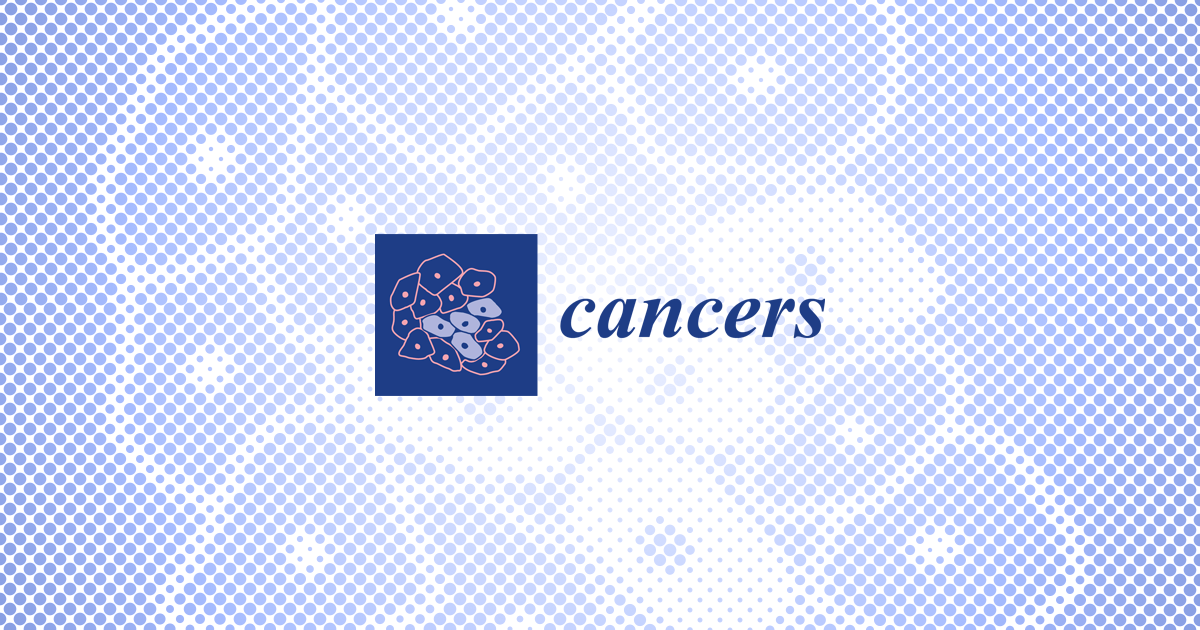This is an early access version, the complete PDF, HTML, and XML versions will be available soon.
Open AccessReview
1
Medical Oncology Unit, National Institute of Gastroenterology, IRCCS “S. de Bellis” Research Hospital, 70013 Castellana Grotte, Italy
2
S.S.D. C.O.r.O. Bed Management Presa in Carico, TDM, IRCCS Istituto Tumori “Giovanni Paolo II”, Viale Orazio Flacco 65, 70124 Bari, Italy
3
Laboratory of Experimental Oncology, National Institute of Gastroenterology, IRCCS “S. de Bellis” Research Hospital, 70013 Castellana Grotte, Italy
4
Osteoncology, Soft Tissue and Bone Sarcomas, Innovative Therapy Unit, IRCCS Istituto Ortopedico Rizzoli, 40136 Bologna, Italy
5
Medical Oncology, IRCCS Azienda Ospedaliero-Universitaria di Bologna, 40138 Bologna, Italy
6
Department of Medical and Surgical Sciences, University of Bologna, 40138 Bologna, Italy
7
Gastroenterology Unit, National Institute of Gastroenterology-IRCCS “Saverio de Bellis”, 70013 Castellana Grotte, Italy
8
Scientific Direction, National Institute of Gastroenterology, IRCCS “S. de Bellis” Research Hospital, 70013 Castellana Grotte, Italy
*
Author to whom correspondence should be addressed.
Cancers 2024, 16(20), 3542; https://doi.org/10.3390/cancers16203542 (registering DOI)
Submission received: 18 September 2024
/
Revised: 6 October 2024
/
Accepted: 18 October 2024
/
Published: 20 October 2024
Simple Summary
Treatment options for intrahepatic cholangiocarcinoma (iCCA), a highly malignant tumor with poor prognosis, are limited. Recent developments in immunotherapy and immune checkpoint inhibitors (ICIs) have offered new hope for treating iCCA. However, several issues remain, including the identification of reliable biomarkers of response to ICIs and immune-based combinations. Tumor immune microenvironment (TIME) of these hepatobiliary tumors has been evaluated and is under assessment in order to boost the efficacy of ICIs and to convert these immunologically “cold” tumors to “hot” tumors. Herein, we examine the role of iCCA TIME, highlighting its mechanisms, current applications and challenges, and future research directions.
Abstract
Treatment options for intrahepatic cholangiocarcinoma (iCCA), a highly malignant tumor with poor prognosis, are limited. Recent developments in immunotherapy and immune checkpoint inhibitors (ICIs) have offered new hope for treating iCCA. However, several issues remain, including the identification of reliable biomarkers of response to ICIs and immune-based combinations. Tumor immune microenvironment (TIME) of these hepatobiliary tumors has been evaluated and is under assessment in this setting in order to boost the efficacy of ICIs and to convert these immunologically “cold” tumors to “hot” tumors. Herein, the review TIME of ICCA and its critical function in immunotherapy. Moreover, this paper also discusses potential avenues for future research, including novel targets for immunotherapy and emerging treatment plans aimed to increase the effectiveness of immunotherapy and survival rates for iCCA patients.
Share and Cite
MDPI and ACS Style
Ricci, A.D.; Rizzo, A.; Schirizzi, A.; D’Alessandro, R.; Frega, G.; Brandi, G.; Shahini, E.; Cozzolongo, R.; Lotesoriere, C.; Giannelli, G.
Tumor Immune Microenvironment in Intrahepatic Cholangiocarcinoma: Regulatory Mechanisms, Functions, and Therapeutic Implications. Cancers 2024, 16, 3542.
https://doi.org/10.3390/cancers16203542
Ricci AD, Rizzo A, Schirizzi A, D’Alessandro R, Frega G, Brandi G, Shahini E, Cozzolongo R, Lotesoriere C, Giannelli G.
Tumor Immune Microenvironment in Intrahepatic Cholangiocarcinoma: Regulatory Mechanisms, Functions, and Therapeutic Implications. Cancers. 2024; 16(20):3542.
https://doi.org/10.3390/cancers16203542
Chicago/Turabian Style
Ricci, Angela Dalia, Alessandro Rizzo, Annalisa Schirizzi, Rosalba D’Alessandro, Giorgio Frega, Giovanni Brandi, Endrit Shahini, Raffaele Cozzolongo, Claudio Lotesoriere, and Gianluigi Giannelli.
2024. “Tumor Immune Microenvironment in Intrahepatic Cholangiocarcinoma: Regulatory Mechanisms, Functions, and Therapeutic Implications” Cancers 16, no. 20: 3542.
https://doi.org/10.3390/cancers16203542
Article Metrics
Source link
Angela Dalia Ricci www.mdpi.com






